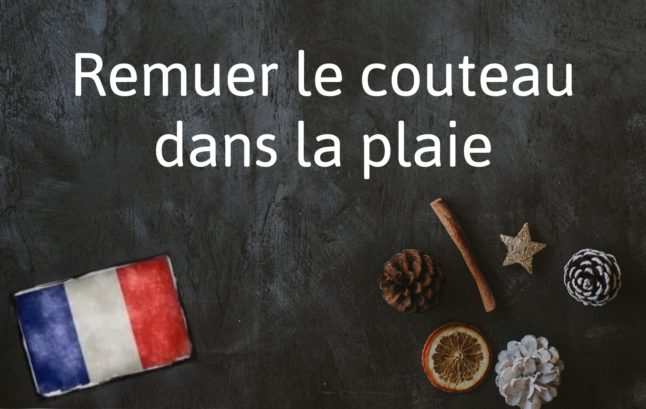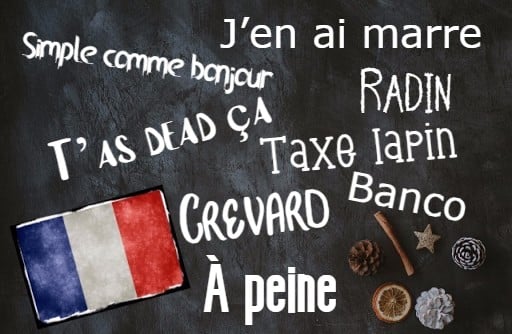Why do I need to know remuer le couteau dans la plaie?
Because this expression might help you complain about an unfair situation.
What does it mean?
Remuer le couteau dans la plaie – roughly pronounced reh-moo-ay luh koo-toe dahn lah- play – translates as ‘to stir the knife in the sore’ or ‘to stir the knife in the wound’.
The French expression dates back to the mid-19th century, and as you might have guessed, it is the French equivalent to the English expression ‘to twist the knife’.
In both French and English, it means to deliberately accentuate pain or suffering.
Usually, you will hear it used in a non-literal sense – perhaps your team was already losing the match, but the opposing team scored again.
A similar French expression is tirer sur l’ambulance (to shoot at the ambulance). It also means to make matters worse, but it is closer to the English expression ‘to beat a dead horse’ or ‘to kick someone while they’re down’.
Instead of remuer, you might sometimes hear the expression used with the verb tourner (to turn).
Use it like this
Recevoir des reproches était une chose, mais le fait qu’il m’ait crié dessus devant tout le monde remuait vraiment le couteau dans la plaie. – Getting in trouble was one thing, but the fact that he yelled at me in front of everyone was really twisting the knife.
La défaite est une chose, mais le dernier but refusé remuait vraiment le couteau dans la plaie – Losing is one thing, but that final goal being disallowed really twisted the knife



 Please whitelist us to continue reading.
Please whitelist us to continue reading.
Member comments